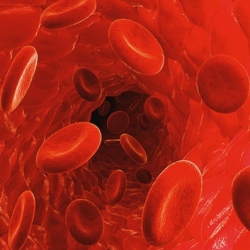
Every year, vaccines for save thousands of lives. But in remote parts of the world, vaccines are hard to come by. Many have to be administered with a needle, which requires sterile conditions and a medical professional. Many of the vaccine solutions have to be kept refrigerated or they expire quickly, making them harder to keep on hand.
To work around these logistical challenges, researchers have been working for years on creating a pain-free patch to vaccinate against measles. The patch would administer the same solution to a patient using microneedles, no refrigeration or medical personnel required.
Today researchers from Georgia Tech and the Centers for Disease Control and Prevention announced that a measles vaccine patch could begin clinical trials as early as 2017. That may not sound like a big deal since we’ve been hearing about vaccine patches for a decade, but this is the first time we have a real timeframe in which we can expect to see them undergoing experimentation.
Vaccine patches have taken a while to come about, because the skin does not easily absorb the large molecules used in vaccines. As a result, previous iterations of the vaccine patch haven’t been as effective as vaccines administered by needle. Georgia Tech researchers are not the only ones working on a vaccine patch, but they have long been at the forefront of this field; the team recently completed another study in monkeys and found that their measles vaccine patch worked just as well as a vaccine administered by needles and had no adverse side effects. The patch is also more stable at varying temperatures and won’t require refrigeration, making it hardier than existing vaccines.
